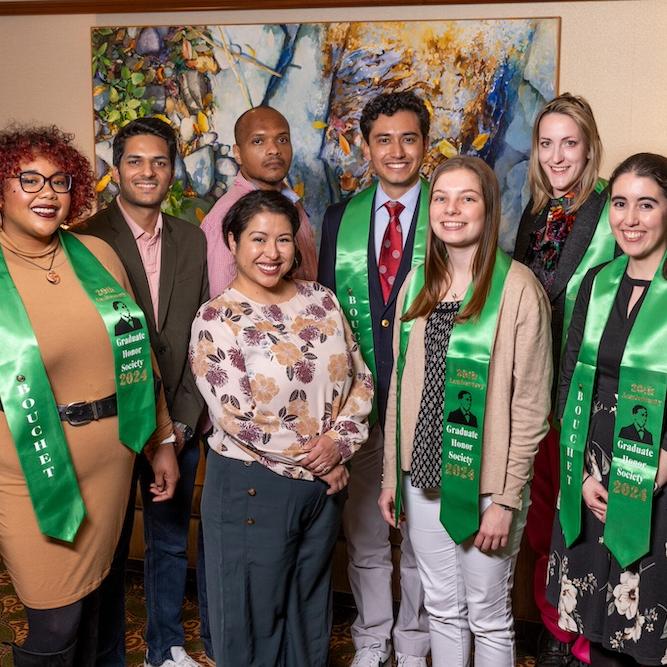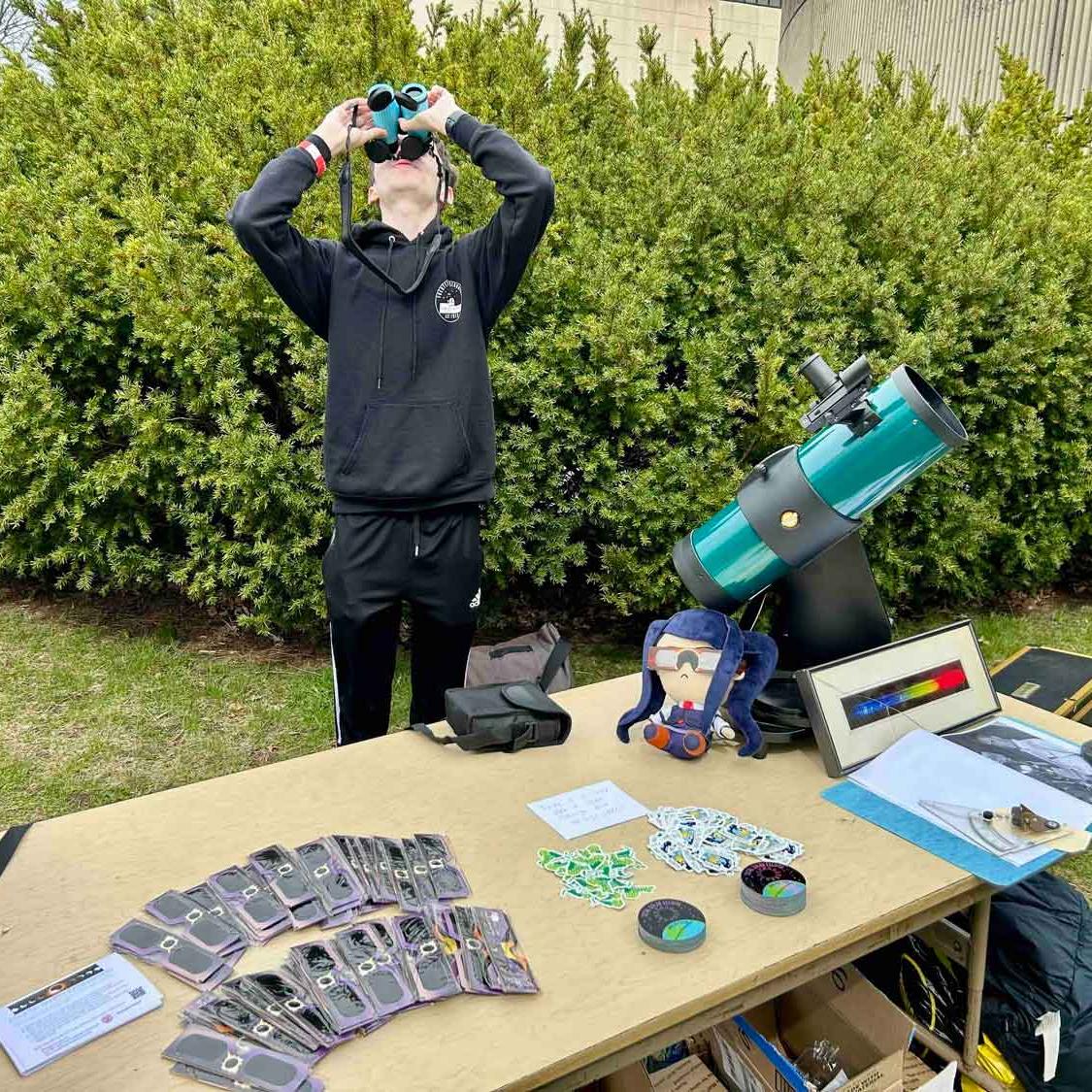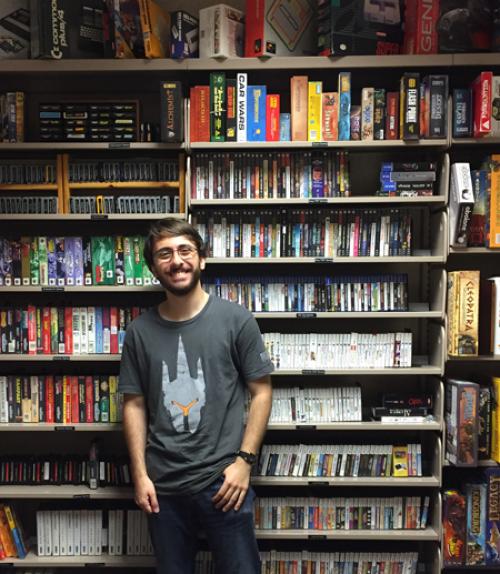“I see video games as literary texts — just as film, television, comics and books are literary texts,” said Christopher Lombardo ‘18, who is spending his summer doing research at the University of Michigan Computer and Video Game Archive. His research, which is funded by a grant from the Tanner Dean’s Scholars Program, will be the foundation of his honors thesis.
“Like each of those narrative forms, they have a vast capacity for expression and emotion, and a huge potential for humanistic inquiry. And really, I don't think it's possible to play many video games without realizing that truth somewhere along the way," Lombardo said.
In his research, Lombardo focuses on trauma theory as a lens through which to examine the interaction between player and character. Trauma theory is an interdisciplinary theoretical body that draws from psychoanalytic, feminist and poststructuralist discourses and focuses on the study of both personal trauma such as abuse and collective experiences of trauma such as genocide. The theory offers a framework for understanding experiences that overwhelm the coping mechanisms of individuals, and involves inquiry into the relationship between memory and truth and the ways that testimony can aid the recovery process.
“Since sophomore year, I’ve been putting together the basis for an honors thesis on volition, altruism and choice in video game narratives,” Lombardo said.
A physics and English double major, Lombardo has always been interested in both creative and academic work. His time at the archive involves surveying large groups of games to study how they represent the health, damage and death of game characters. He’s also playing specific games to do plot analysis and close reading.
“I have notes on about 45 different games and have played about 10 of those to completion,” he said. “Most of the games I've played all the way through took between 8 and 12 hours to complete, which was at least a full day of work.”
Lombardo has been keeping track of recurring patterns.
“I’ve been studying how the plots play out, how the characters interact, how the player is variously challenged, invoked or addressed by the game as a distinct figure or entity, how the game deals with elements like choice and time, how the game directs the player to certain goals or conclusions, and how the game presents players with options both explicitly and implicitly over the course of its narrative,” he said.
Lombardo has made some interesting discoveries about several games such as Shadow of the Colossus, a 2005 PlayStation 2 game that sends the main character on a quest to slay 16 “colossi” in order to revive their dead partner.
“The game has a somewhat unorthodox control scheme that requires the player to press a button once to raise the character's sword, wait as the character gathers strength, and then press it again to complete the stabbing motion,” Lombardo said. “This creates a feeling of total complicity in the game's violence that turns what could have been a power fantasy into an incredibly complex and saddening experience. In effect, that control scheme became part of the game's text — it added immeasurably to the game's themes of desperation and solemnity.”
Lombardo says various Cornell classes have guided him during research, including ENGL 3785: Apocalyptic Films and Fictions with Stuart Davis, senior lecturer in the English department, and ENGL 3021: Literary Theory on the Edge with Amy Villarejo, professor of performing and media arts, and Cathy Caruth, the Frank H. T. Rhodes Professor of Humane Letters in the English department.
He’s also grateful for the University of Michigan Computer and Video Game Archive, the Dean’s Scholar Program and his advisor Professor Greg Londe, assistant professor of English. “None of what I’ve done here would be possible without them,” he said.





